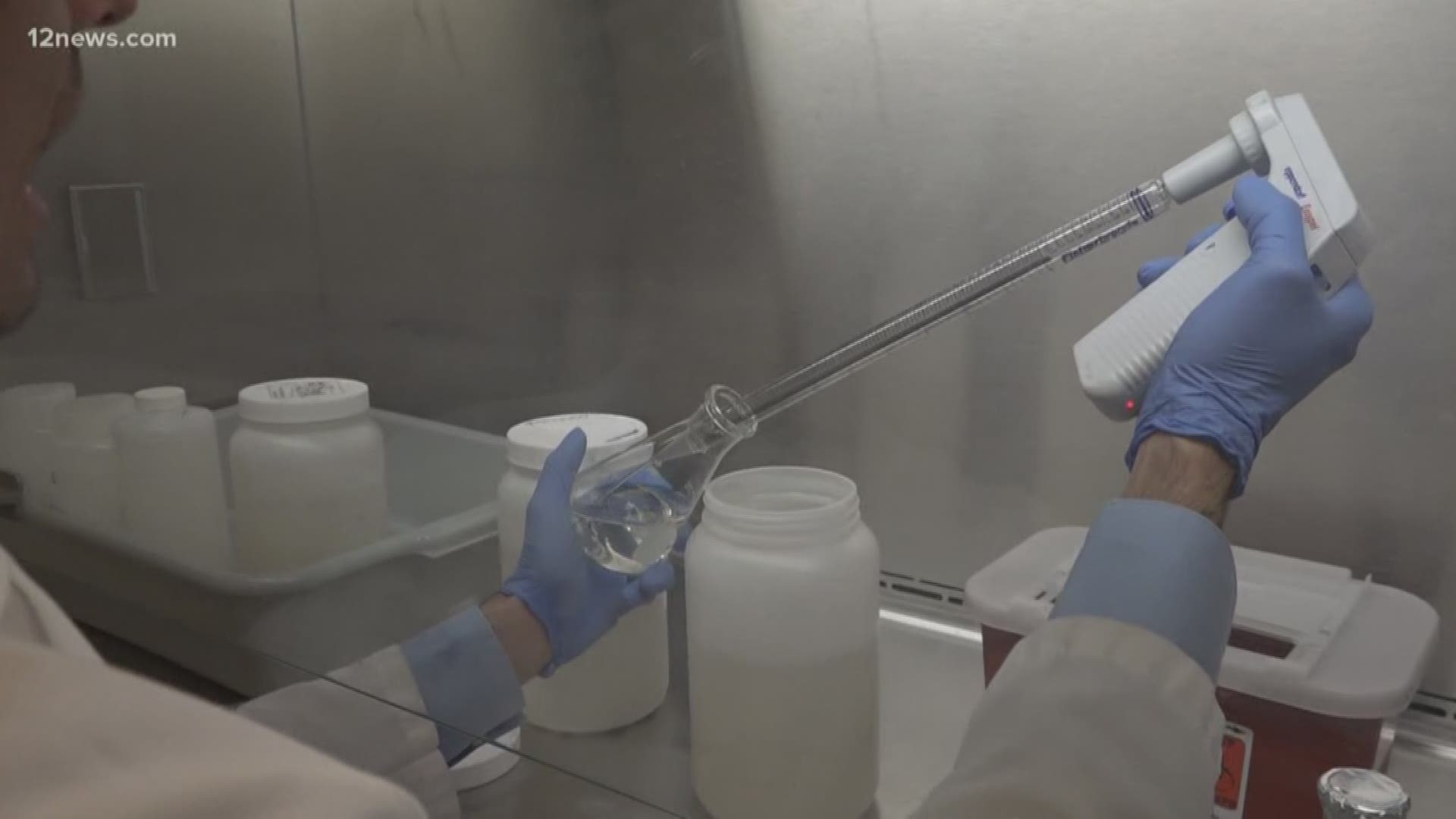TEMPE, Ariz. — The City of Tempe is further trying to determine how sick its residents are by using the city's sewage water to find traces of infectious diseases.
The city started testing wastewater samples a few years ago for opioids to identify parts of Tempe where residents may be struggling with drug abuse. Now the city has expanded its program to start testing for several types of infectious diseases and illnesses.
One of the new biomarkers being detected in Tempe's sewage samples is for West Nile virus, an illness with no specific medications or vaccines available to treat it.
Each year, Maricopa County reports cases of the mosquito-borne illness and some of them turn fatal. A retired Tempe police officer died in 2021 after he contracted West Nile virus.
Wastewater samples collected in Tempe are taken to a lab where they're filtered for viral genetic material. Scientists then run tests to determine the abundance of the virus' characteristic genes.
The detection of a pathogen in sewage water does not necessarily mean residents are at risk of getting infected, according to the city.
Other biomarkers now getting tested in Tempe are for influenza, hepatitis A, norovirus (stomach flu), and adenovirus 41.
City officials said testing wastewater samples for these illnesses can result in collecting data that helps to inform public health decisions.
“Wastewater data can be an important early warning signal and is most useful when used alongside other community-level data," said Wydale Holmes, Tempe's director of strategic management and innovation office.
Anyone who uses a restroom located in Tempe could potentially contribute to a sewage sample that's analyzed by scientists for biomarkers.
The testing results of the various biomarkers can be found online here.
*Editor's Note: The above video is from an earlier broadcast*
UP TO SPEED

